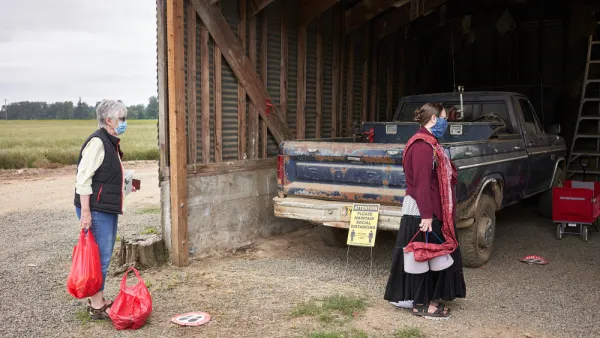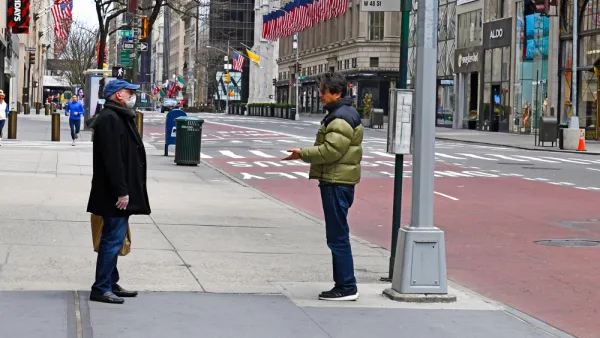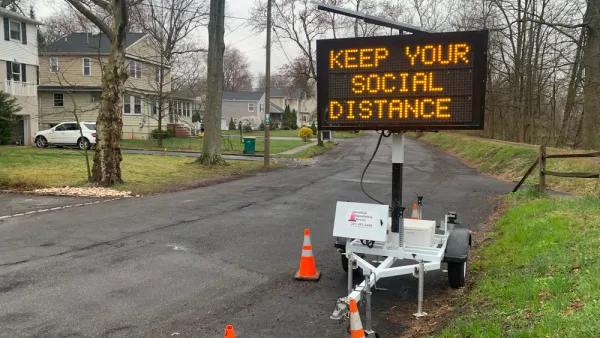This post from Wired's Autopia blog looks at the history and potential of an Intelligent Transportation System (ITS).
Smart communication tools and RFID chips have the potential to dramatically reshape the way people interact with city transportation systems.
"This future of transportation will be based around smart phones, mobile navigation systems and other common gadgets and will drastically change how we navigate and interact with cities.
The idea of ITS, at its most basic, is to connect every vehicle in a network of transportation users that instantly tracks and shares information. Ideally, everyone will be able to quickly determine where the accidents and tie-ups are and what routes can be taken to avoid them. What this means for the average commuter is quicker drive times by the way of more efficient traffic patterns and planned out routes created for you in real time.
Of course, transportation planners have been promising us this for the better part of two decades."
FULL STORY: Glimpse the Wireless Future of Transportation

National Parks Layoffs Will Cause Communities to Lose Billions
Thousands of essential park workers were laid off this week, just before the busy spring break season.

Retro-silient?: America’s First “Eco-burb,” The Woodlands Turns 50
A master-planned community north of Houston offers lessons on green infrastructure and resilient design, but falls short of its founder’s lofty affordability and walkability goals.

Delivering for America Plan Will Downgrade Mail Service in at Least 49.5 Percent of Zip Codes
Republican and Democrat lawmakers criticize the plan for its disproportionate negative impact on rural communities.

Test News Post 1
This is a summary

Test News Headline 46
Test for the image on the front page.

Balancing Bombs and Butterflies: How the National Guard Protects a Rare Species
The National Guard at Fort Indiantown Gap uses GIS technology and land management strategies to balance military training with conservation efforts, ensuring the survival of the rare eastern regal fritillary butterfly.
Urban Design for Planners 1: Software Tools
This six-course series explores essential urban design concepts using open source software and equips planners with the tools they need to participate fully in the urban design process.
Planning for Universal Design
Learn the tools for implementing Universal Design in planning regulations.
EMC Planning Group, Inc.
Planetizen
Planetizen
Mpact (formerly Rail~Volution)
Great Falls Development Authority, Inc.
HUDs Office of Policy Development and Research
NYU Wagner Graduate School of Public Service





























